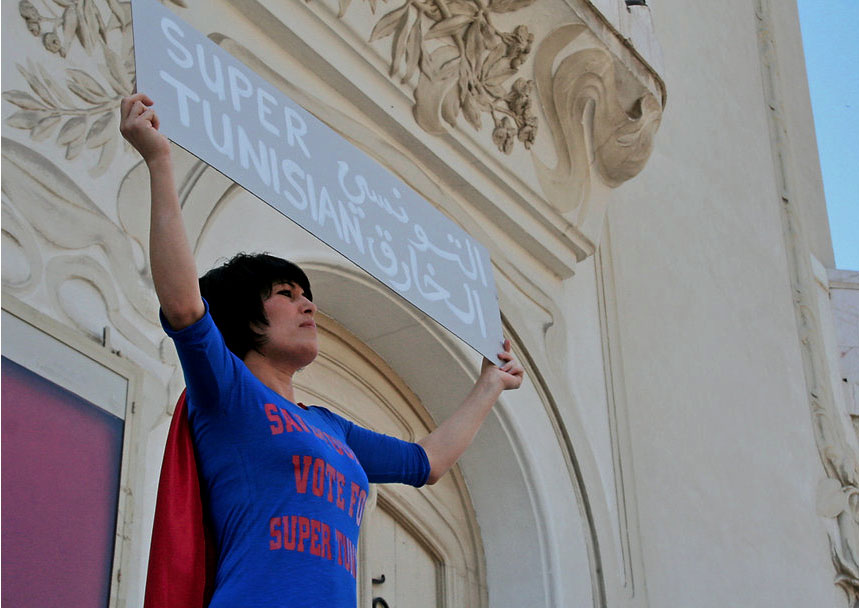
This month in The Markaz Review, we consider courageous and powerful women, from France’s first female imam to Yemen’s first woman Minister of Information — women who have defied convention and fought patriarchy, or like teenage Ahed Tamimi, fought for freedom and spent time in jail. With contributions from Farah Ahamed, Rachid Bouhamidi, Salma Ahmad Caller, Jean-Philippe Cazier, Ibrahim Fawzy, May Haddad, khulud khamis, Fouad Mami, Kamin Mohammadi, Sara Mokhavat, Nora Lester Murad, Nadia Al-Sakkaf and Laëtitia Soula, HEROINES looks for the extraordinary in the efforts of everyday women to overcome adversity.
Our HEROINES issue is devoted to the women-led uprising in Iran, resulting from the death of Mahsa Jhini Amini in September 2022 at the hands of Iran’s so-called “morality police,” who arrested Amini because her hijab failed to cover her hair entirely. With an original essay from Iran by Sara Mokhavat (translated from the Persian by Salar Abdoh), “Defiance” relates the true story of students who rose up on campus against an oppressive cleric.
We also present an exclusive excerpt from Franco-Moroccan novelist Abdellah Taïa’s latest book Vivre à la lumière/Living in Your Light, whose main character, Malika, is inspired by the author’s mother, M’Barka Allali Taïa, to whom he dedicated the novel.
But in case you’re hungry for a real-life super hero, you might consider that in May of 2011, four months after the fall of Ben Ali, artist and activist Moufida Fedhila (pictured above) incarnated Super Tunisian, in reference to the iconic Superman. She paced Habib Bourguiba Avenue in Tunis dressed as a superhero. She promised to citizen-passersby to revolutionize their country thanks to her super powers. A Super Country ruled by a Super Hero resolving all the super problems. It was a scathing parody full of humor of the demagogic political speeches that were then legion and continue to saturate the public sphere. This performance entitled “St’art” was accompanied by the distribution of flyers printed with a bilingual electoral program that seemed important to transcribe.
“Today, in order to challenge all non-concrete proposals from political parties as well as the transitional government, proposals that do not meet the Tunisian people’s will, Super Tunisian is back to decide her own political future.
Super Tunisian featured included:
– A super-strength that enables her to overcome all the political forces and create a Super Country.
– A super-vision to anticipate the unseen attacks of obscure forces in every dead-end situation and to see around dictatorships.
– A super-speed that allows her to go beyond rental cars honking in the middle of the night (propaganda ritual introduced by Ben Ali throughout his power, of cars honking in the streets following each of his speeches).
– A super-memory that allows her to remember the repression of a glorious past. To speak all kind of obscure languages and quickly assimilate those she has never learned.
(Vote for Super Tunisian by choosing the blue card!”)
Since the post-revolutionary period liberated public space, Moufida Fedhila felt the need to value the art in the streets of Tunisia, to ask questions, even to provoke the average citizen. Her approach as art-tiviste was not possible under the totalitarian regime and she felt the need in the new political context to stir up the territory she was born in. Rapidly during the performance that lasted approximately an hour and a half, the debate arose with passersby who gathered around her. Some citizens embraced the concept and relayed the words of Super Tunisian in the street, others rejected them. Leaflets and posters were then torn from passersby … Were they undercover police officers, not accustomed to freedom of expression resulting from democracy, or simply upset citizens? But isn’t that what makes this intrinsically art: to inspire an emotional or intellectual reaction?
From “Moufida Fedhila, Political Artist,” Aurélie Machghoul, Tunis 2012, Translation: Hisham Ben Khamsa.



